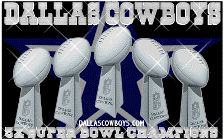Sorry, Goose, but it’s time to buzz the tower.
 In keeping with my Bohemian heritage and Reformation Day, I thought I'd highlight one of the lesser known figures, the pre-Reformer John Huss (also spelled Jan or Johannes Hus).
In keeping with my Bohemian heritage and Reformation Day, I thought I'd highlight one of the lesser known figures, the pre-Reformer John Huss (also spelled Jan or Johannes Hus).Huss was from Bohemia (now part of the "Czech Republic) and was the master of the University of Prague. He preached in the language of the people (not Latin) at Bethlehem Chapel, at a time when possession of a non-Latin Bible was punishable by death.
His theological views and criticisms of the church were heavily influenced by John Wycliffe, the English pre-Reformer.
Huss (whose name means "goose" in Czech) was among the first to buzz the tower and draw the ire of the church.
He opposed the corruption in the church and was on the "wrong side" with regard to accessibility to the Bible, authority of the pope, and issues of salvation. He spoke against simony (the purchase of church offices) and indulgences (the purchase of forgiveness).
Huss was excommunicated for siding with Pope Alexander (as did the people of Bohemia) instead of the Pope who succeed him (and may have murdered him) and for failure to comply with the order to ban and burn all the works of Wycliffe, and failure to stop preaching. Part of that papal bull of excommunication forbade anyone to give Huss food, drink, salutation, discourse, purchase, sale, or hospitality.
Huss was undaunted:
Huss reminds his friends that Christ himself was excommunicated as a malefactor and crucified. No help was to be derived from the saints. Christ’s example and his salvation are the sufficient sources of consolation and courage. The high priests, scribes, Pharisees, Herod and Pilate condemned the Truth and gave him over to death, but he rose from the tomb and gave in his stead twelve other preachers. So he would do again. What fear, he wrote, "shall part us from God, or what death? What shall we lose if for His sake we forfeit wealth, friends, the world’s honors and our poor life?... It is better to die well than to live badly. We dare not sin to avoid the punishment of death. To end in grace the present life is to be banished from misery. Truth is the last conqueror. He wins who is slain, for no adversity "hurts him if no iniquity has dominion over him." In this strain he wrote again and again. The "bolts of anti-christ," he said, could not terrify him, and should not terrify the "elect of Prag."Even though the Council of Constance had condemned Wycliffe and ordered his writings burned and his bones exhumed, burned, and sprinkled in the river, Huss did not distance himself from Wycliffe.
-Phillip Scaff, History of the Christian Church, §45.
"I indeed confess that I hold the true opinions propounded by Master John Wycliffe, professor of sacred theology, not because he taught them but because the Scriptures taught them."In the face of trumped up charges and imminent death, Huss was able to express joy to Christ while being burned at the stake as a heretic in 1415. As Huss stood before the stake he reportedly said, "In the truth of the Gospel which I have written, taught, and preached, I die willingly and joyfully today."
-Matthew Spinka, John Hus at the Council of Constance (New York: Columbia University Press, 1965), pp. 69-70.
584 years after Huss experienced a humiliating and cruel death, Pope John Paul II apologized to the Czech people on December 17th, 1999.
"Today, on the eve of the Great Jubilee, I feel the need to express deep regret for the cruel death inflicted on Jan Hus and for the consequent wound of conflict and division which was thus imposed on the minds and hearts of the Bohemian people."
-The Vatican Information Service (VIS)
Incidentally, Huss proved to be a prophet at his execution when he said, "You are roasting a poor Bohemian goose, but in 100 years there will arise a swan whom you will neither roast nor boil."
I don't know if any would refer to him as a swan, for Pope Leo called Martin Luther a "wild boar" (i.e., pig) in his papal bull of excommunication, Exsurge Domine. ("Rise up, O Lord, for there is a wild boar loose in your vineyard.")
I have every confidence that this "pig" would find kinship with "the goose" and wouldn't hesitate to say, "Ich bin ein Hussite."
"A cantionale, dating from 1572, and preserved in the Prag library, contains a hymn to Huss’ memory and three medallions which well set forth the relation in which Wyclif and Huss stand to the Reformation. The first represents Wyclif striking sparks from a stone. Below it is Huss, kindling a fire from the sparks. In the third medallion, Luther is holding aloft the flaming torch."
-Phillip Schaff, History of the Christian Church, §45.
On the 490th anniversary of Luther's nailing of the 95 Theses on the church door in Wittenburg, we also celebrate John Huss, an early advocate of sola Scriptura, who was willing to die a martyr's death for the One who had died for him.




























